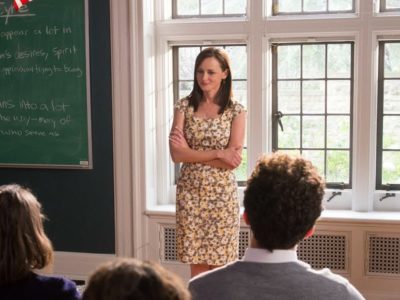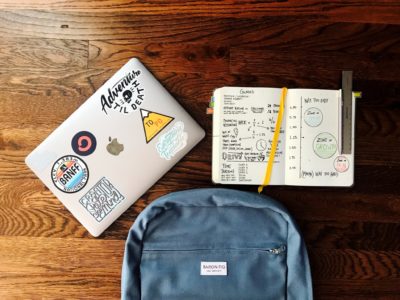What do you do as a first generation, immigrant college student? Do you pursue your own interests, or do you do what your parents expect you to do? I did the one thing I knew how.
I listened to my mom. She knew what was best, she was always right. and I trusted her. Being the oldest of three, I was forced into a role model position. The pressure was real, and I felt it every day of high school as I explored my academic interests. When my seventh-grade history teacher instructed his students to write about their career aspirations, I wrote mine about becoming a physician. At age 12, I was dead set on going to medical school with an unwavering determination that kept me inside studying during sunny afternoons while my sisters and friends played outside.
When high school came around I allocated a lot of time and energy into my science classes. The funny thing was, I was enrolled in all subjects and I enjoyed all of them. Perhaps the variety of classes satisfied a burgeoning curiosity, or perhaps a part of me really didn’t like science as much as I thought I did.
Nonetheless, I applied to college senior year as a declared biology major. In my conscious mind I was still obstinate on pursuing the pre-med track. It was a goal that I set in middle school—I couldn’t imagine letting go or changing it.
Freshman and sophomore years of college saw me drowned in the pre-med “ocean” where I tacitly competed against all my fellow “fish” for “food.” Science classes are held in lecture halls full of more than 150 students, so there is a grading curve, which inadvertently (or not) forces each student to compare his or herself to the rest of the students in the class.
The pressure becomes too real.
And the reality is, you can’t trust anyone in the class besides the professor or the TAs.
I know of one highly-competitive pre-med student in my year who sabotaged her biology lab partners, one of which was her roommate, for the sake of earning the better grade. Students perform experiments in groups during lab, and though it’s supposed to be “teamwork,” the low acceptance rates of medical schools implicitly demand students to score better than their “teammate.”
Every pre-med student knows this, and Molly was no exception. After completing the experiment, she and group needed to write individual lab reports. Molly wrote down all the numbers and calculations from the experiment, but she shared false numbers to her group.
The girls in the group didn’t realize these numbers were wrong until the lab TA reached out about the oddity of the calculations—they didn’t make any sense. Molly was confronted and in she defended herself by saying she “accidentally” gave them the wrong calculations from another lab period. This act of deviance spread around the pre-med community like wildfire. It’s safe to say that Molly sits alone during lectures, but the point is that science classes that put a tremendous amount of pressure on students hoping to enroll in medical school.
This highly competitive environment dampened my interest in biology. My once fascination with the body and a crave for learning how and why things function turned into an annoyance fueled by the inclination to not fully understand a concept for the sake of wanting to, but for the sake of getting an A on an exam. More so, the egotistical science professors knew their students needed strong recommendations and gave us every opportunity to boost their self-esteems by making their exams so intricately hard that everyone feared, but also glorified, them.
It wasn’t until sophomore year when I took a literature course that I realized what I truly wanted. This course, like many humanities courses, consisted of about 30 students circled in a small discussion room. Unlike my science professors, my literature professor knew all her students’ names. The structure of the course made it this way; it was much more of a personal, informal teaching environment, one where students actually appreciated the subject and sought to improve their analytical skills.
I found peace in reading short stories by Flannery O’Connor, who expertly mocked the superficiality in human interaction. I identified with marginalized characters, like Esch in Salvage the Bones. I wrote my papers with eagerness and passion unparalleled to how I approached my science courses.
Reading and writing papers isn’t any easier than studying for a biology exam, it’s just different. And it came much more naturally to me.
“Have you considered becoming an English major?” my literature professor asked me. I said no, but her remarks left a lasting impression on me. I had written the best first paper in the class, and she asked permission to use my work as a model for upcoming assignments. I realized that my appreciation for reading and writing enabled me to succeed in the literature course. The following summer I imagined myself studying English literature for the rest of my college career.
It scared the living hell out of me.
That was this past summer. I’m in my third year at Boston College and declared a new major: English. Why am I still a Biology major? I’ve worked so hard, and have gone so far; I’ve nearly completed all the credits for a Biology B.S. I decided why not just complete the rest of the requirements?
My focus is on English, what I’m truly passionate about. I don’t know if I still want to be a physician anymore. I don’t know what my future looks like and that’s scary, but I’ve learned to contend with it.
Who actually knows what their future looks like? Knowing that the majority of people in college are unsure makes it easier to deal with the anxiety and uneasiness of not knowing.
Though my workload doubled, I’m not as stressed as I felt last year. When you’re doing what you enjoy, “work” is no longer the right word. It becomes a pastime, something you look forward to doing. Because I major in what I like, I am happier, focused and more engaged.
Despite certain negative stigmas surrounding humanities majors, I feel confident that my passion for reading, writing, and the arts will prove that enthusiasm in itself is enough to get by.



















